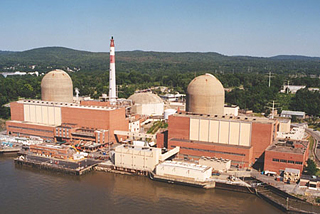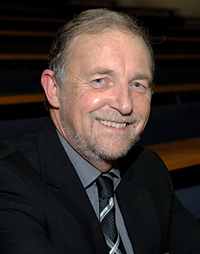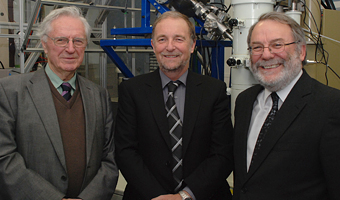Safer nuclear power stations
Tue, 06 Nov 2012 15:52:00 GMT
Huddersfield scientists seek to ensure nuclear power stations are catastrophe-proof
 UNIQUE facilities and specialist expertise at the University of Huddersfield are being harnessed by U.S. authorities seeking to ensure that their country’s nuclear power stations are ‘catastrophe-proof’.
UNIQUE facilities and specialist expertise at the University of Huddersfield are being harnessed by U.S. authorities seeking to ensure that their country’s nuclear power stations are ‘catastrophe-proof’.
The project was spurred by the damage caused to the Fukushima nuclear plant in Japan, which was hit by a tsunami in March 2011. Now it has gained added urgency after the super storm named Sandy hit the U.S. eastern seaboard and resulted in nuclear stations being placed on high alert.
pictured above: the Indian Point power plant, Hudson River, New York
“The U.S. authorities want to make their nuclear reactors as accident-tolerant as possible,” says Professor Steve Donnelly, of the University of Huddersfield. He will make a key contribution to the research project by using the facility known as MIAMI in order to simulate the effects of radiation damage on coatings that will be applied to the zirconium cladding tubes that contain nuclear fuel in U.S. reactors.
 “These are so-called light-water reactors, so the cladding is in contact with very hot water, which can cause corrosion. The idea is to take the cladding, made from zirconium, and to put a specially-developed ceramic coating on it,” explained Professor Donnelly. Now he will help to appraise the likely performance of this new coating when subject to radiation.
“These are so-called light-water reactors, so the cladding is in contact with very hot water, which can cause corrosion. The idea is to take the cladding, made from zirconium, and to put a specially-developed ceramic coating on it,” explained Professor Donnelly. Now he will help to appraise the likely performance of this new coating when subject to radiation.
MIAMI – which stands for Microscope and Ion Accelerators for Materials Investigation – was custom-designed by Professor Donnelly, who heads the University of Huddersfield’s Electron Microscopy and Materials Analysis Research Group. It uses ion beams to simulate the effects of neutron bombardment on potential reactor materials avoiding the build-up of radioactivity that can occur when neutrons are used.
“At the end of the project, depending on how the coatings have performed with the ions, the coatings will be tested with neutrons by the U.S. partners,” said Professor Donnelly, who is Dean of the University’s School of Computing and Engineering.
His latest project began when the U.S. Department of Energy announced $13 million in grants so that a network of universities could take part in research to develop and test the new ceramic cladding. Elements of the project are being undertaken by American universities that include Tennessee, Pennsylvania State, Colorado and Michigan.
 UK universities were invited to join the programme with the funding being awarded after a competitive process. In addition to Huddersfield, the UK universities include Sheffield, Oxford and Manchester. UK funding is being channelled through the Engineering and Physical Sciences Research Council. Professor Donnelly’s contribution to the research will begin in January and is scheduled to last for three years.
UK universities were invited to join the programme with the funding being awarded after a competitive process. In addition to Huddersfield, the UK universities include Sheffield, Oxford and Manchester. UK funding is being channelled through the Engineering and Physical Sciences Research Council. Professor Donnelly’s contribution to the research will begin in January and is scheduled to last for three years.
The University's Professor Stephen Donnelly (centre) is pictured above at the opening of MIAMI with former Astronomer Royal Professor Sir Arnold Wolfendale (left), a former colleague of Stephen, and Professor Sir Peter Knight (right), who chairs the University's EPSRC Centre Steering Committee.







